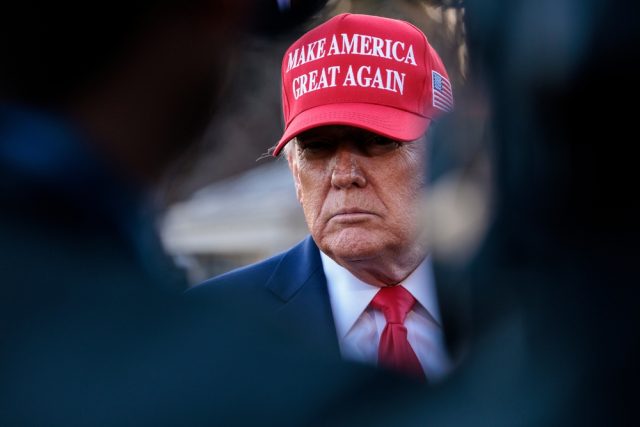
Few of the Trumpian White House’s actions have garnered so much attention as the president’s battle against ideologically corrupted cultural institutions, mainly universities. As the media establishment and the progressive movements in Europe have to a large extent conceded defeat to nationalists when it comes to immigration, the focal points of criticism towards Trump in his second term have moved towards areas that are still contested between liberals and conservatives. The perhaps main topic of criticism is of course Trump’s tariffs, but his defunding of and demands towards universities such as Harvard have also been widely reported about in Europe.
The obsession with the university issue is understandable in much of Europe, where higher education is to a large extent publicly controlled through state ownership or other indirectly public structures. When Donald Trump threatens to pull federal investments into institutions such as Harvard, it hits especially hard in Europe, where the concept of education and research being left in the hands of private interests is more alien than in the US.
Many commentators on Trump’s demands towards higher education have predicted a brain drain from the United States, and that it is Europe who could stand to supposedly benefit from this. In Sweden, the minister of education has repeatedly expressed, both implicitly and explicitly, that “persecuted” researchers from the United States could find a refuge in Sweden, and contribute to development and enrichment here (what sort of science refugees one can expect from the eviction of woke less important to virtue-signalling politicians).
Others have pointed out that as Harvard and other institutions are bogged down in conflict with the federal government, Chinese top universities could grow at their expense, dethroning the US and putting China in the front seat of global technological and scientific development.
All of these speculations are of course demoralising for those who believe that at the centre of Trump’s confrontation with the universities is an important issue; that the universities are promoting radical anti-Western ideology, and are both politically and culturally undermining conservative values in society.
It is from universities across the United States that dangerous identity politics seeped into Western intellectualism, and into public institutions and governments. Politicians, judges, lawyers, and businessmen are to a large extent alumni of these prestigious ivory towers, that have been reproducing destructive ideology for decades now. This includes racialised and gender-informed “social justice”, “oppression” hierarchies, and sentiments that at best advocate irreverence and at worst hatred towards native Europeans and white Americans.
Obviously it is the job of a conservative and nationalist president to put a stop to the federal support of these programmes. Those who believe this is at odds with the United States’ role as a leader in science and technology are either misinterpreting what Trump’s goals are, or are insidiously working to preserve Western universities as woke fortresses.
American soft power turned into anti-power
Another perspective that has been brought up in Western press regarding American universities under Trump’s White House is their utility for Western “soft power”. Much of the United States’ global dominance has come as a result of its non-military power; its cultural exports come not only in the shape of films, music, and other arts, but also in academia. Its natural sciences produce technological exports that other countries are dependent on. Its social sciences, part of the Western humanistic tradition, are essential to the understanding of republican governance, the division of power, constitutionalism, and other aspects that make out contemporary democracies.
However, the latter is also where the problem with the American soft power comes from. The woke social sciences and modes of thoughts that emit from American universities do not serve to make the United States or the wider Western world an inspiration in other parts of the world, it does the opposite. It dismantles Americans’ own right to be proud of their country, and it has been used to push controversial sexual ideologies that are despised in the rest of the world.
If we were to imagine what woke ideology would lead to if unstopped, one could start by imagining the state of some of the United States’ cities, or even of the most afflicted countries in Europe. What is it that makes New York, Los Angeles, Paris or London powerful brands to this day, that are identified worldwide with prosperity, glorious history, art, culture, and being an overall aspiring place to live? It is the legacy of these places – an imagined version of what these cities used to be like in a different era, that is informed by clichés, nostalgia, and romanticism. Yet the current state of Western civilisation, as it is evoked through some of its most renowned cities, is hardly the envy of the world.
Liberal and progressive criticism of Donald Trump’s measures against woke academia is trying to convince us that what orients the rest of the world towards the United States and/or Europe, as opposed to Russia or China, is the loud, obnoxious, and irreverent iconoclasm that our elite is engaged with towards their own people. All the while, the Western export of woke ideology to other cultures, such as in Asia, is met with derision and confusion. Nobody in India, Africa, the Middle East, or Southeast Asia is clamouring to be under the cultural influence of woke ideology. On the contrary, much like most ordinary people in the West, non-Westerners recognise the woke trend in the United States and in Europe to be an assault on moral goods, eternal truths, beauty and dignity.
If it isn’t in the United States’ and Europe’s interest for Donald Trump to root out subversive woke brainwashing from the universities and other public institutions, then nothing is.



 Subscribe
Subscribe